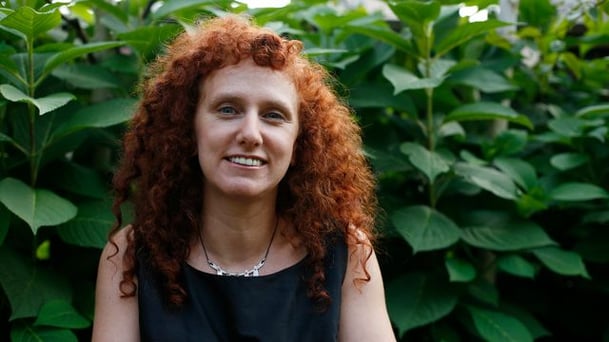
“I was, in general, terrified of other people; I used drugs for emotional protection and social comfort.”
So writes Maia Szalavitz in her book Unbroken Brain: A Revolutionary New Way of Understanding Addiction, which interweaves her personal addiction account with science and research supporting the idea of addiction as a learning disorder, and why tough love doesn't work with drug addicts.
Tough love, interventions and 12-step programs are some of the most common methods of treating drug addiction, but journalist Maia Szalavitz (pronounced "Shalavits") says they're often counterproductive.
For Szalavitz, drugs were a way to soothe shame, sensory issues, and social anxiety. They gave her a sense of security and belonging, and that learning was so powerful that she persisted in using substances despite significant negative consequences.
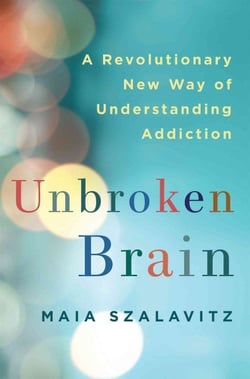 Szalavitz is the author of Unbroken Brain, a book that challenges traditional notions of addiction and treatment. Her work is based on research and experience; she was addicted to cocaine and heroin from the age of 17 until she was 23.
Szalavitz is the author of Unbroken Brain, a book that challenges traditional notions of addiction and treatment. Her work is based on research and experience; she was addicted to cocaine and heroin from the age of 17 until she was 23.
Unbroken Brain upends outdated interpretations of addiction as a failure of morality or willpower and significantly modifies the currently-prevailing brain disease model of addiction as well.
In framing addiction as a learning disorder, Szalavitz sheds light on some of the most puzzling aspects of addiction, such as why most people who abuse drugs in their youth outgrow addiction as they age.
Maia Szalavitz is a proponent of "harm reduction" programs that take a nonpunitive approach to helping addicts and "treat people with addiction like human beings."
In her own case, she says that getting "some kind of hope that I could change" enabled her to get the help she needed.
About Maia Szalavitz
Maia Szalavitz is one of the premier American journalists and has been covering addiction and drug related issues for nearly 30 years. She writes a column for Vice and has been a health reporter and columnist for Time magazine. She is the author of several bestselling books and she writes has been published in the New York Times and other top publications.
In our interview Maia spoke about Unbroken Brain and the nature of addiction, as well as …
- Her surprising trajectory from gifted Ivy League student to serious drug user, doing cocaine and heroin up to 40 times a day
- The underlying core mental and emotional health issues driving Maia’s drug use, including shame and social anxiety
- Maia’s theory that addictions are not the result of broken brains or addictive personalities, but rather types of learning and developmental disorders
- Addiction as a search for safety rather than an attempt to rebel
- The role of early life trauma as a critical factor in the development of addiction
- How considering addiction as a learning disorder changes the conversation about treatment and long-term recovery; how to make treatment more respectful and effective
Edited Transcript of Tough Love and Addiction: An Interview with Maia Szalavitz
Caroline McGraw: Maia, you went from life as a gifted Ivy league student to a life of using cocaine and heroin up to 40 times day. How did that happen? What were some of the underlying issues that were really driving your drug use?
Maia Szalavitz: Sure. Well, I was always a very weird kid and I felt very socially isolated from very early on. I just had sensory issues so that lights were too bright, and sounds were too loud, and I over-reacted emotionally to a lot of experiences.
And so that made me a great target for bullies because I would always react.
It's hard sometimes to be a smart kid because the other kids aren't interested in the same things. And if you're especially obsessive about the things you're interested in, that can be a serious problem.
I discovered that unlike science fiction or opera, drugs were an obsession that other people were actually interested in.
When I got interested in psychedelics partially because I was like, "Wow, these can alter your consciousness and allow you to feel connected to things." And I sort of read the Electric Kool-Aid Acid Test and all this stuff about the '60s, and I was like, "Oh, that sounds like yeah, I want to be a part of that."
And then, yeah then actually taking psychedelics I began to have friends and talking about psychedelics made me seem like an expert and people wanted to get high with me.
That was where it started.
And if I had sort of stuck with the traditional hippie advice of “Ignore the white powders and don't touch them and never shoot anything,” I probably wouldn't be sitting here. I would have had a very different life, but I unfortunately did not and in the '80s it was one of the cocaine decades.
Addiction and Social Inclusion
We tend to switch every 10 years between stimulants and depressants. So you've got like '70s heroin, '80s coke, '90s heroin, '00s methamphetamine, '10s opioids.
But so the '80s were cocaine and it was very hip and very popular and I did it, and I felt like I'm cool, I can get into the cool clubs because I have it and I can ...
People want you to come to their parties because I have it, and so it just allowed me to feel socially included and I got suspended from school because I was selling it and that was a disaster. And so I thought my life was over and then I said, "Well, I may as well try heroin."
And so I thought my life was over and then I said, "Well, I may as well try heroin."
So, this was all not very good reasoning.
But what happens when you are a person who has some kind of outlying neurology or outlying temperament, you find stuff that actually works to make you feel okay.
You are inclined to do things that you would not otherwise do, in the same way that somebody who falls in love with somebody would be inclined to do things they might not otherwise do, just to keep that relationship going. So, that is basically the short version of what happened.
Caroline McGraw: Sure. Thank you for sharing that, and I love in your book you write, "I was in general, terrified of other people. I used drugs for emotional protection and for social comfort."
And I think so many people can relate to that because there's obviously epidemic drug use, and so many people struggling with social anxiety.
And so just highlighting that connection that we're going to talk about trauma, we're going to talk about some of the other issues later on. But that social anxiety alone can be a huge motivating factor.
Maia Szalavitz: Well I mean, I think particularly with opioids, the opioid system in the brain is there to make socializing rewarding. It's there so that you love your mom, and your mom loves 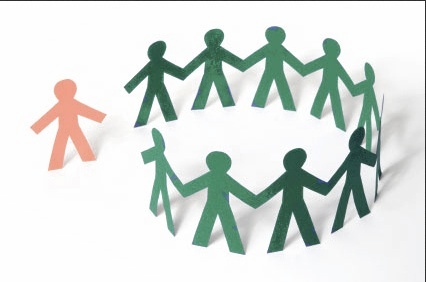 you and all that good stuff that happens with stress relief between mom and baby, dad and baby and lovers eventually, and friends.
you and all that good stuff that happens with stress relief between mom and baby, dad and baby and lovers eventually, and friends.
All that stuff, basically when you create a social bond with somebody, you're wiring your opioid and dopamine system to that person. You’re artificially creating that, especially if you were deprived in the first place, for whatever reason it may be.
You know, that's really attractive and right now we're in a cultural moment where everything is scary. We have a fraying social network and rising inequality, all kinds of stuff that makes us less connected to each other. So yeah, we're doing heroin. It is not a good thing.
Caroline McGraw: But yet, it makes sense, given some of the context.
Addiction is Not About the Drugs
Maia Szalavitz: Yeah, exactly. I really feel like one of the most important things I want to get out there, is that drug use as an addiction in particular, is not about the drug.
Drug use as an addiction in particular, is not about the drug.
It's not that I was this extraordinarily hedonistic person who just wanted some extra pleasure and that I gave up everything for it. Like, why would you do that? If you had a life that you felt comfortable in, almost nobody does that.
Virtually all people with addiction, something is going on.
And if you look at for example, you don't get a story of, "I was happily going along my life. Everything was fine. I love my husband, my kids were fabulous. My job was amazing. I felt truly good about myself. I was exercising, I was eating well. Everything was fabulous. And then I tried this drug and I decided I wanted to give all of that up."
No.
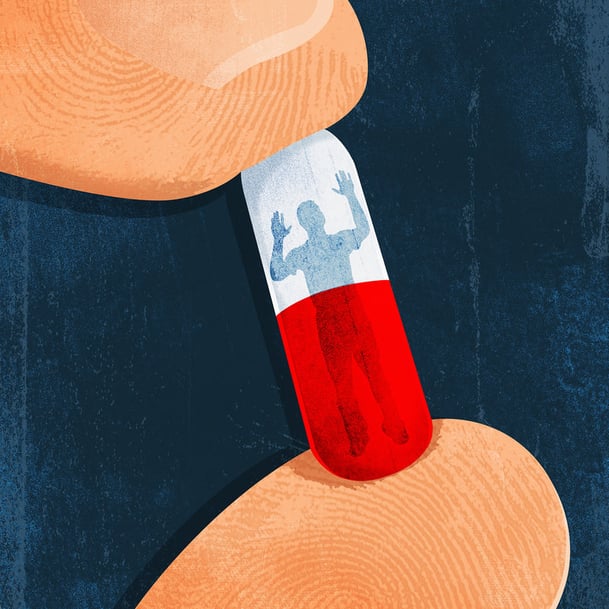 What tends to happen is first of all, with opiates actually only about a third of people really, really like them. And among that group of people who actually like them, the rest of them are kind of, “Eh.”
What tends to happen is first of all, with opiates actually only about a third of people really, really like them. And among that group of people who actually like them, the rest of them are kind of, “Eh.”
Or they really hate them because they make them nauseous and numb.
But among that group that likes them, if you're life's in good shape, people are basically like, "Wow, that was amazing ... I better not mess with that stuff because I'm going to mess up my life."
But if your life is already messed up, that's where the danger is.
Caroline McGraw: Yes, that's a perfect way of describing it. And I wrote another quote from your book. You're talking about: “Addictive behavior is not the root of the problem, it's more like a symptom.
Addiction is often a search for safety, rather than an attempt to rebel or a selfish turn inward.” So, I think that's what you're highlighting here, you're searching for something. There's an unmet need.
Maia Szalavitz: Yeah, exactly. And I mean, the people who take drugs as teenagers basically to tell their parents to F-off, those people often are not addictive people [in general].
Some of them may develop addictions, but a lot of them, it's a symbolic way to piss off their parents and not doing that, or if they start growing up, that's that, they're over it.
But for people who it serves a deeper purpose, that's where you get the problem.
Addiction as a Learning Disorder
Caroline McGraw: Yes. Yes, exactly. And that's a great transition to the theory that you put forth in your book, which is that addictions are not the result of broken brains or addictive personalities, but rather that they're a kind of learning disorder that it can be categorized as a developmental disorder.
And can you share, how did you come to that? And what are the components of that theory?
Maia Szalavitz: Basically when you look at developmental disorders ... I was interested in this because I basically as a kid would've been diagnosed with Asperger's syndrome, if that had existed as a diagnosis at the time.
But so I got interested in that whole area ... [With children who are] really young, little kids, you don't generally see schizophrenia at that time. You won't see addiction at that time.
You do see addiction very, very strongly in the teens and early twenties. Like 90% of addiction starts at that time.
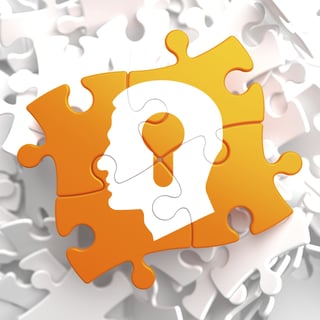 That is actually a very critical period for brain development because what's going on is, you are developing these networks that allow you to fall in love, to parent, to be an adult.
That is actually a very critical period for brain development because what's going on is, you are developing these networks that allow you to fall in love, to parent, to be an adult.
And these bonding systems are actively developing. And the sort of system that's going to get you away from your parents and out into the world, is developing.
And that's developing before the stuff that puts on the brakes and self-control and all of that other good stuff.
You get a racing engine and not so great brakes and a lot of times, this is a surprise to a lot of people, but the majority of people with addiction actually outgrow it without any self help groups, without any treatment, without anything.
They just kind of get to a point where it's like, "Wow, this just doesn't work. I better put this down. I've got a kid now, I got married, I got a job."
Whatever.
A lot of people stop before they're 30, and that is interesting because that brain development, by age 25 or so, you're starting to get the controls on. And once those are there, it's a lot easier to be able to manage recovery. Part of a learning issue is that it comes on at a specific time in life.
Also, the thing with addiction that is really fundamental is, if you don't learn that the drug fixes you, you don't know what to crave so you can't go get it. Like, there's people who will come out of the hospital physically dependent on an opioid, they don't know it. They feel a little nauseous, they feel a little out of sorts for a couple days, they have no idea that they're undergoing the holy terror of withdrawal because it is a holy terror for them, because they haven't fallen in love with the drug.
And so they're not going to go randomly, "Oh, I think I feel like today scoring heroin for some reason."
No, that doesn't happen.
What happens if you don't know what to crave, you can't go and take it compulsively despite negative consequences.
You have to learn that the drug is a thing that works for you.
And then, you have to persist despite negative consequences, right? That’s the definition of addiction.
And so, you have to have compulsive behavior despite negative consequences. And negative consequences is basically a synonym for punishment. So basically, not learning from punishment in relation to behavior around this thing.
And that's an evolutionarily good strategy, if it's taking care of your kids or staying with your partner.
It's not good if you're in love with a drunk.
So basically, a system that learns to set your priorities in order to survive and to reproduce. That's what then goes awry in addiction and that is a specific difficulty with a specific type of learning in relation to a specific experience.
And other learning disorders, like dyslexia for example, it's very specific. It's just about ... I'm not going to precisely describe it at the moment, but it's not about general intelligence.
People with dyslexia can be brilliant. And yet, they have this one specific issue. And most learning disorders are like this. Similarly, autistic people. Often brilliant, but they have this social thing.
Also, people with ADHD, lots of different things. If you have a problem with this one thing, but the rest of the thing is working fine. And so that again suggests okay, this is a very specific learning disorder.
Why Tough Love Doesn’t Work in Addiction Treatment
Understanding this to me was a revelation because it's like wow, how dumb is this? We've been using punishment to try to treat a condition that is defined by its resistance to punishment.
Like, what? Why would we do that?
And so, I got interested in that, and then when you learn the history of our drug laws and you see the utter racism and complete lack of science in them, you understand why that occurs. Once you get that, and once you get that that really is the essence of addiction, then you cannot support our very stupid and cruel drug policy.
We've been using punishment to try to treat a condition that is defined by its resistance to punishment.
Caroline McGraw: That was going to be my next followup question, talking about addiction and recovery, and how does this model change the way we look at treatment?
Maia Szalavitz: Sure. Basically, treatment that is punitive, shaming, and humiliating is not good for addiction.
It is not good for children. It is not good for anything.
Those tactics are not to be used in medical care.
They do not help.
They do a tremendous amount of harm to people with addiction.
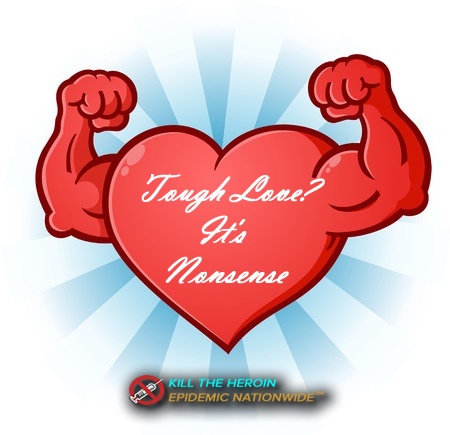
And all those tactics are aimed at making you hit bottom and experiencing consequences and all this stuff like this, because clearly the problem is that you just haven't suffered enough yet.
If you're willing to persist despite negative consequences to get your drugs and you lose your house and your car and your friends and everything else like that, why is another punishment going to help?
It is not.
Treatment that is punitive, shaming, and humiliating is not good for addiction.
You've got to get rid of these kinds of shaming, humiliating, disrespectful kind of treatments. That's like the first lesson here.
The second one is that if you have a problem with learning specifically, it's not like your brain is broken. You know, you fall in love with somebody, yeah you're going to feel sad when you break up and it's going to be an awful experience sometimes and you are going to feel like you lost everything for a while. But your brain isn't broken and the fact that you have these strong, powerful associations with that person, is not an error, it's just that's what happened.
That's what you learned, right? So you learn something that's problematic in a system that makes learning very deep and hard to undo.
I think this is a helpful view also because if you see addiction as this specific learning problem, you don't have to be like, "I'm damaged, I'm diseased for life. I'm never going to get better. This is always going to be a chronic, painful problem for me." That will be true in some cases, but fortunately most people can get over a horrible breakup with a drug or with a person.
If you see addiction as this specific learning problem, you don't have to be like, "I'm damaged, I'm diseased for life. I'm never going to get better.
And that gets more difficult when you are talking about a person whose life is in bad shape.
If we want to help people recover, we have to do things that give them a life worth living.
And that involves having a sense of meaning and purpose and having connections. And that's going to be very, very different for different people.
There are some things that other people are interested in, that I can't imagine why, that would not give me a sense of meaning or purpose. The things I'm interested in would bore the hell out of a lot of other folks.
Just as the way you get over a breakup is really individual, the way we get over addiction is going to be really individual.
Addiction and Dual Diagnosis
[What is Dual Diagnosis? Dual diagnosis is the term used to describe two disorders occurring in one person at the same time, one of which is addiction and the other a mental or emotional health condition, such as depression or anxiety.]
And you need to figure out specifically ...
50% of people with addiction have another mental illness.
And that basically shapes their temperament.
You might be kind of Aspy and have social difficulties and anxiety.
You might be depressed.
You might convulse.
You might have bipolar or whatever.
 Those things need to be dealt with, you need to feel comfortable in your neurology. You might need medication for that, you might need meditation for that, you might need exercise, you might need a partner, you might need a cat, you know whatever.
Those things need to be dealt with, you need to feel comfortable in your neurology. You might need medication for that, you might need meditation for that, you might need exercise, you might need a partner, you might need a cat, you know whatever.
But you need to figure out a way to live comfortably ... instead of a very, very narrow, miserable life.
Who wants that?
We need to find these things for people. Oftentimes it's a job.
On 12-Step Programs
And this is why we get into this whole debate over the 12 Step thing, because some people really do find fabulous meaning and purpose in that program and we should not discourage that.
My issue with that is just that it shouldn't be sold to people as professional healthcare because you're paying for something that's free, which is dumb when you have limited resources.
And you are also violating the program's own traditions by paying for something that should be voluntary service, which has a very different meaning if you're doing it that way.
And also, you're crowding out treatment that works for other people and the rehab and treatment centers should be focused on teaching people how to avoid relapse, how to cope with whatever mental illness they may have, how to deal with any kind of trauma they may have.
Two-thirds of people with addiction have some kind of childhood trauma. And so again, that is going to change your neurology profoundly. If you have trauma in early life, it wires you in a way that your stress system changes and is overreacting, underreacting.
Two-thirds of people with addiction have some kind of childhood trauma.
It can be a lot of different things but when that happens, again you're not going to feel very comfortable and an opioid or a stimulant, depending on which type of trauma and how you respond to it, those things may be very powerful for you, so you again need another way to deal with that and to feel safe and comfortable.
Treatment should fundamentally be very individualized to deal with these particular things whether it's impulsivity or depression or anxiety, whatever it is, and dealing with trauma.
If you do those and you get somebody safely through the most difficult transitional period, then and they have a life to go to, something to live for, that's when we see recovery happening.
On Addiction and Detox Medications
It's really important for people with opioid addiction particularly to realize that the only thing we know of that cuts the death rate by 50% or more, is sustained maintenance with either methadone or buprenorphine.
And in an environment where there's all this fentanyl out there, and where there is all kinds of crazy stuff, and insane overdose rates, we need people to have that protection. For a couple of years, till they really stabilize, till they really learn stuff and if they've been on for a couple years and they feel safe and comfortable and all is well, why come off?
I am on Prozac,
I'm going to stay on Prozac. I don't care. It worked.
Like I don't want to feel depressed again, why would I? It's not having bad side effects. I feel like it's really important to have people realize that these medications save lives and that what we've been taught about them is wrong. You're not always high, you're not not needing recovery.
These medications are really useful. If you're having bad side effects, if the program you have to deal with is a horrible pain in the butt, if there are maybe reasons that you want to come off, but don't do it because you're stigmatized.
Fight the stigma.
Download Dual Diagnosis Free EBook
Trauma and Addiction
Caroline McGraw: Yes. So many good points. The whole time you were sharing, I just felt like oh, you're speaking our language. As viewers probably know, we're focused on dual diagnosis treatment. And so looking at the anxiety, the depression, the trauma, all of those things, that's our focus 100%.
And I loved in your book you talk about the amount of pain and heartbreak that typically precedes addiction, and how trauma can be a critical factor in its development. And one of the things that blew my mind when I first started learning about this, was just the idea that there's a medical, physical definition of trauma but the emotional, psychological definition is entirely subjective.
It's what was harmful to you personally, and hence your point about the individuated treatment. It has to be personal.
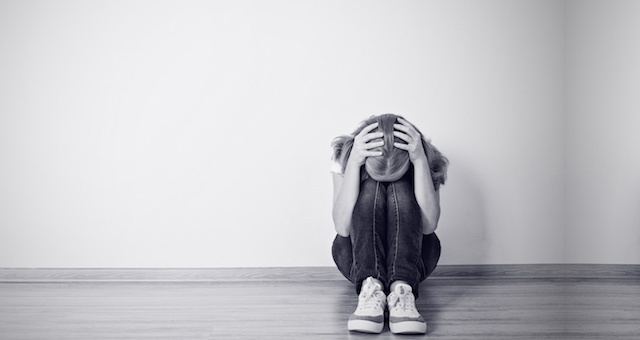
Maia Szalavitz: Yeah, and one of the things about the fact that humans are wired very differently, is that an experience that might be utterly trivial to you, could be completely traumatic to me.
And that's just how it is.
Some things sensitize some people's nervous systems, and other things sensitize other people's nervous systems.
It's really important to not trivialize people's experiences and to really just help them feel comfortable and safe.
What treatment should be is ... imagine you have a horrible disease like cancer or whatever, god forbid, but if you had that, you would want to feel safe and protected and you would want people around you who cared about you, who weren't being jerks to you, who weren't yelling at you, "It's all your fault!" and horrible stuff.
How is that going to help anybody?
So much of treatment for so long has been so awful.
And then we blame people with addiction for not seeking treatment because they're just having so much fun.
Caroline McGraw: Right, who would want to go to such a punitive treatment? What's the motivation?
And as you said in your book, you shared that from before first grade, you already felt this sense of badness. Like you were a bad person. And add years and years and years of that, for so many people. Yeah, you don't want any more punishment.
Maia Szalavitz: I mean, my father was a Holocaust survivor, obviously there were issues going on that might tend to lead to self hatred. But he had a lot of depression. My mom had some depression. There was stuff.
And, I was this sensitive little kid. I picked this stuff up. So being able to recognize that and ... have an Asperger's diagnosis, I turned out actually to have been given an ADHD diagnosis that I never knew about.
But I could not frame this. I didn't know why is it that stuff bothers the heck out of me, and I feel the need to control so I could just feel okay, and everybody else just quietly goes on and it doesn't bother them. I just think, "Oh, well I'm bossy and selfish and controlling."
Which I've been told at times as a child, because I was behaving that way. But it was because I couldn't deal with the stuff, all the input.
And so, when you kind of realize those things, kids can label themselves worse than any label you might decide to give them. I would've much preferred to have been labeled Aspy or something, because at least I would have known oh, this is a complex syndrome of things.
They all fit together, all this stuff that you have is part of something.
It's not “Maia is a bad person,”
“Maia can't control herself”, or whatever.
I think labels are difficult because another kid might take an Aspy label and be like, "Oh, well I'll never have friends and I'll never do this." And they take in those limitations. I would've taken it and been like, "Oh, wow. Okay this explains it. Phew!"
Caroline McGraw: What a relief.
"Change the Way You Look At Things.."
Maia Szalavitz: Yeah. But this is why I'm sort of obsessed with the question of labeling and defining things, because it changes your brain profoundly.
It changes how you interact the world.
Kids pick up these weird little things, and they create a self out of them.
And then you don't even know, because I didn't tell anybody this stuff. It was non-verbal.
I think it's really important to sort of realize that little kids are creating this structure for the rest of their thought, for the rest of their life scarily enough.
And that's terrifying to parents and obviously nobody can be perfect and you shouldn't try. But it's just, this is the way humans grow and develop. And it's very interesting.
And it's very sad and painful in some ways.
-- Editor's Note: Dr. Wayne Dyer had similar thoughts on the power of language, labeling, and perspectives:
"If you change the way you look at things, the things you look at change."
-- Wayne Dyer
Neurodiversity, Positive Purpose and Tolerance
And what we hope to do, is allow people to develop with the neurology they have, into the best version of that because the thing that I always want to mention too, is that all of these things that gave me all of this pain, also gave me the talent that I have as a writer and the ability that I have to do whatever I do.
If I hadn't had this oversensitivity, I could never have written the book.
[Is there a positive aspect to addiction? Yes, read on here.]
If I hadn't had the persistence despite negative consequences, that was making me shoot up 40 times a day, I wouldn't have also been able to persist through 10 million rejections, which is normal when you're a writer.
I think that this is not to say that there aren't some disabilities that are just disabilities that have no pluses to them, but most of them fortunately have some good sides. And the bug is also a feature, if you're given the right environment in which to flourish.
And I think the disability rights movement ... Socially, right? If I want to go like this, or whatever, right? That's only socially unacceptable because we make it socially unacceptable. It's not because there's something inherently wrong with doing that, right?
We need to be more socially accepting of diversity in people, in every different possible way. And when we do that, that gives room for people to be how they are without suffering horrible anxiety.
Caroline McGraw: Well said. Well said, and I can relate to that on so many levels personally because I am a writer, and I also have a younger brother who is on the autism spectrum.
Maia Szalavitz: Oh wow! Yeah.
Caroline McGraw: So, I can completely relate to this idea of just allowing the person to be who they are, and finding their unique gifts and looking at it as, this is one aspect of them, but it's not the entire picture.
Maia Szalavitz: And you know for such a long time, people thought, “Oh, if we just suppress these repetitive behaviors, we just stop people from doing whatever they want to do that makes them more comfortable to stimulate themselves or calm themselves.”
Like, why?
It's annoying to you. It's helpful to them.
Okay yes, we should try to minimize our annoyance of other people, but those other people should also have a little bit of tolerance for where we're at, right?
But I do think it's so important to recognize that if you accommodate disability, and create environments where all types of people can flourish, you end up with much better spaces for everybody.
I mean, I'm going to say something ... restaurants today [can be] horribly loud. It’s really difficult for anybody with sensory stuff but also other people actually like to talk in restaurants, and they don't have to be neurodiverse at all to want that, right?
When you create wheelchair ramps, oh gee they also work for strollers, you know?
It's really like when there's unexpected benefits to being inclusive. Obviously, it's the right thing to do anyway but I think it's always helpful if there's selfish as well ...
Caroline McGraw: Oh, completely. Completely. I love that. My brother always goes out with the big noise canceling headphones and sometimes I want to borrow them because I'm just like, "It is really loud! I would enjoy those. That would be helpful."
Maia Szalavitz: Yeah, no it's funny me and my noise canceling [headphones], I'm like walking down the street always here in New York and it's funny, I have to be careful not to always use them because then you get sensitized and it gets worse so you have to like, you know? But New York is seriously loud. I would prefer not to damage my hearing anymore.
Caroline McGraw: Yes. And that's something our founder Joe Koelzer tends to say, that every person that comes through the program is unique, but what they tend to have in common, he said they usually tend to be smart and they tend to be sensitive. And that's why they end up here ...
Maia Szalavitz: I mean, I think that's a really important and under researched area. When I was working on the book, I was really surprised to learn about just how many people actually do have sensory issues that are not on the spectrum, or maybe they are and they didn't realize, or whatever. But mostly not. And I don't think anybody had researched how sensory over sensitivities play into addiction. But we now know being on the spectrum, and having normal to high IQ doubles your risk of addiction.
But we now know being on the spectrum, and having normal to high IQ doubles your risk of addiction.
This is only known very recently because I think in the past, studies of autism were looking at the most severely disabled, where even if you wanted drugs you probably wouldn't get them.
But so those who can pass for normal as much as possible can also and that can cause risk.
And I say this in the book, I was on a list of moms who had lost their kids [to addiction] and they were talking about, “Oh, they needed the tags cut out of their undershirts.” It was like, I could've been on an [autism parents] list. And it was like, somebody really needs to study this.
Caroline McGraw: Yes, I wholeheartedly agree. And that's such a great point to talk about, the sensitivity.
And I love how you highlighted that in the right environment, these things can also be strengths because one of the exercises that we have folks do is working with their addicted aspects, but looking at the ways that those parts of themselves are strong and have been trying to help them.
Like you were saying with the drive, the perseverance, the persistence, the tenacity, that if you can direct those in a functional and healthy way, that those things can be amazing strengths.
Maia Szalavitz: Yeah, I think it's really helpful to look at it that way, especially when you've been so marginalized and so stigmatized and been told so many times, "Oh, we don't even want to save your life because you're worthless."
Some of the people who you would most want to have in your world, who are artists and musicians and just incredibly creative people, tend to be sensitive. Now this can also make them jerks, but can also make us very creative ....
Sometimes I feel like when people talk about sensitivity oh, I'm a sensitive flower.
Blah, blah, blah,
I’m special or whatever.
I don't want to do that.
I just want to say use it productively and you can use sensitivity to be either very empathetic and supportive, or to just go within and possibly be mean to other people because you can't deal.
It's like anything else, seriously complicated.
Caroline McGraw: Amen, yes ... I want to honor your time. I'm so grateful to you for coming and for having this conversation with us. Any final words of wisdom? Anything else you wanted to share for folks who are listening who might be dealing with addiction?
Empathy and Addiction Recovery
The way people recover from addiction is through love and connection and empathy.
Maia Szalavitz: I mean, I just really want to say that most people do recover. You just have to stay alive long enough to get there and for most people that isn't that long.
By 30, half of all addictions are over. And most of the people are not dying of overdoses, people are aging out and doing okay.
So there is hope.
And if you seek help and people are treating you with disrespect, seek help elsewhere.
It is not acceptable.
It is not acceptable in a heart surgeon, it is not acceptable in an addictions counselor.
 The way people recover from addiction is through love and connection and empathy.
The way people recover from addiction is through love and connection and empathy.
And that doesn't mean there's not any pain, but it means that we don't inflict extra pain in order to try to help you, which is not a good thing to do.
Caroline McGraw: Yes. Yes, that's so well said and it sums up one of the catchphrases that we tend to use is, when we apply love to the parts of ourselves that hurt, we heal. And that we have that capability to heal.
Maia Szalavitz: Yeah, I think that makes a lot of sense. And when you realize that, I mean part of the thing that I think is so painful during addiction for a lot of people, is that you hate yourself for hating yourself and you hate yourself.
It’s this meta self-hate that causes the unbearableness.
It's like, if you can get out of that loop and just be like, “Okay I realize that this is not working. It's okay. You're going to figure out something...”
Caroline McGraw: Yes. I have a post-it note on my refrigerator that says, “It's okay, you're all right, there's no rush, you can do this.” Just in case [I] need the reminder.
Maia Szalavitz: Yeah, that's a very good place to move I think!
Caroline McGraw: Thank you. This has been a delight.
Underlying Core Issues and Addiction
Learn more about underlying core issues and how they drive addiction. Download our free, 40-page eBook.



